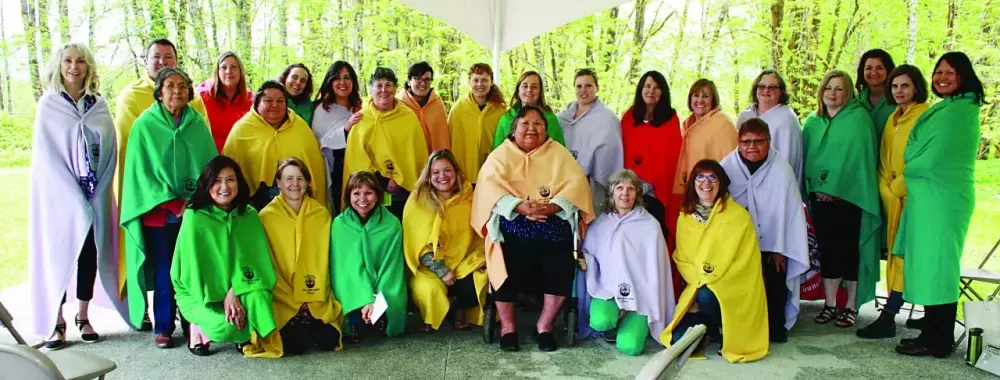Although new cases of COVID-19 are clearly on the downward trend in British Columbia, social distancing measures remain, with directives to avoid close contact and gatherings with others while in public. Health care providers have followed the province’s social distancing requirements by heavily relying on telephone and online consultations with patients, and remote Nuu-chah-nulth communities have limited entry to essential services only.
But how do nurses who focus on relationships with those in the distant reaches of western Vancouver Island maintain their connections while such communities remain vulnerable to potential spread of the highly infectious coronavirus?
“Pretty much everything you do during the pandemic is challenging,” admitted Jeannette Watts, manager of the Nuu-chah-nulth Tribal Council’s nursing program. “The basic essential nursing services have to be looked at really closely step by step by step to uphold the regulations during the COVID pandemic.”
Among the essential nursing services are vaccination clinics to control other infectious diseases, as well as consultations with expecting parents and families of newborns. These services have already gradually begun to return to Nuu-chah-nulth villages.
“Those clinics have to be set up very carefully. All the steps to maintain proper personal distancing have to be taken into consideration,” stressed Watts. “We’ve always provided various clinics, but we haven’t been able to have them until just recently because of COVID.”
This also applies to travel for nurses venturing to communities like Anacla, Nitinaht Lake and Zeballos. Normally two nurses travel alongside each other in a truck to these villages, but now one drives while another sits in the back to follow the social distancing guideline of six feet – both wearing masks.
For years now the nursing program has adhered to a model emphasizing culturally appropriate, respectful health care that upholds traditional Nuu-chah-nulth practices. Service delivery follows Nursing the Nuu-chah-nulth Way, an ongoing research project and framework drafted through consultation with elders that respects “individual needs, family systems and community empowerment” while promoting “the full spiritual, emotional, mental and physical potential” of patients, according to the framework.
This culturally directed approach has proven to be a transition from a nursing model based on Health Canada. Marlene Atleo, an associate professor at the University of Manitoba’s Department of Educational Administration, Foundations & Psychology, has been contributing to inform this nursing approach since the 1980s.
“From early on the nurses had a very difficult time orienting themselves to the Nuu-chah-nulth and the demands of the Nuu-chah-nulth nursing program, because they were educated in a way in which that wasn’t well articulated or well defined,” she said. “Since ’85 my orientation has been disorientation. How do we orient people to what our community needs and our vision of ourselves, as opposed to their reason of what we should be? It’s a huge gap.”
The process has become a means of informing professionals of the Nuu-chah-nulth way of seeing the world, an education that Atleo incorporated into the nursing program at North Island College.
“It’s a whole new ball game because we have completely different assumptions of how the world is constructed and what we need,” she said. “So increasingly nurses have come in with more intercultural awareness, training and all that kind of thing.”
Although they haven’t been seeing patients as often during the COVID-19 pandemic, constant communication has been essential to maintain connections.
“Nurses are calling clients on a daily basis, they’re reaching out to all of their clients that they work with,” said Watts. “They’re working hard to maintain those relationships that they’ve built with people in communities while they’re unable to go in.”







